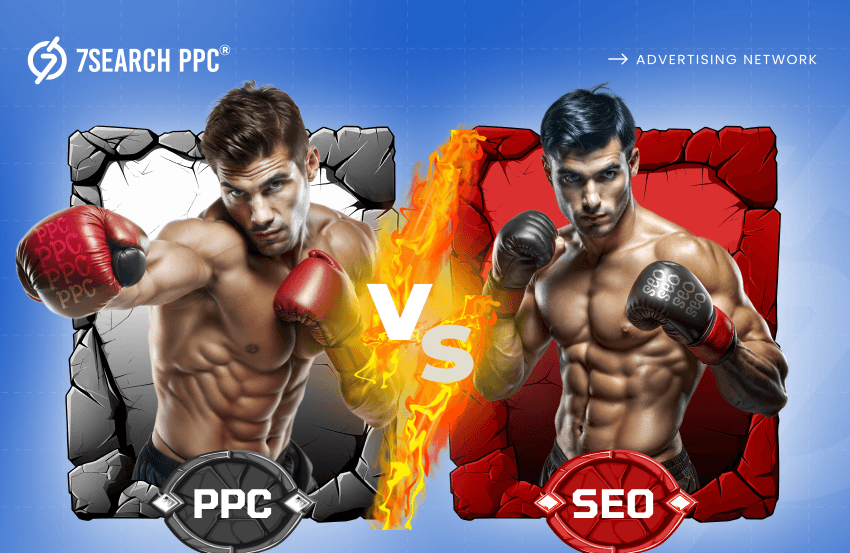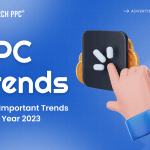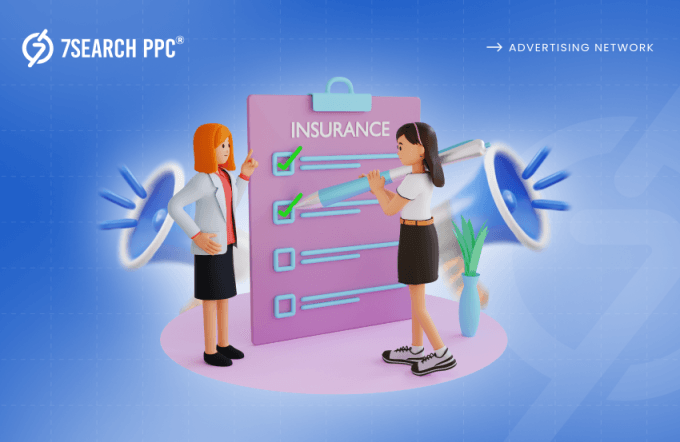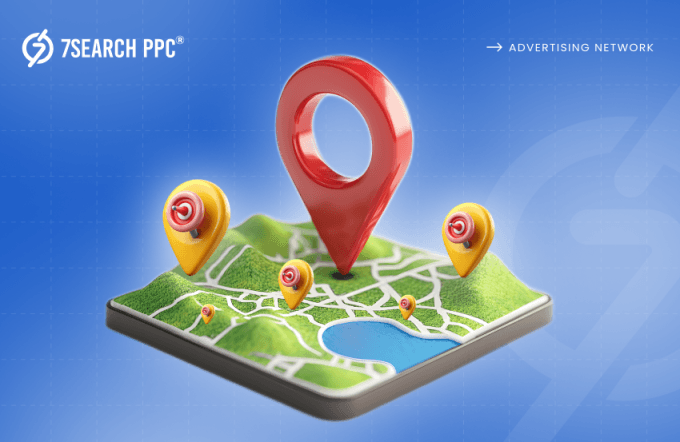SEO vs PPC has been a debatable topic for an extended period. Both SEO and PPC can help you rank your website, content, or advertisement over the internet. Many advertisers and marketers may confuse themselves as to which is a better option to advertise their brand. Saying SEO is better than PPC, or vice versa, will not conclude the long-lasting debate. And for all those soliciting answers to the question, “Should I invest in PPC or SEO,” We have prepared a detailed article that will give you a solution to all such questions.
Keep reading to get the utmost information about SEO vs PPC.
Difference between SEO and PPC :
Search Engine Optimization (SEO)
Search Engine Optimization SEO is a tool for improving your brand’s visibility in search engine result pages (SERPs) to gain visitors’ attention and clicks to your website.
The extent of SEO is not just limited to web search engines. SEO strategies can also help you improve your visibility in map search results, images and video search results, app stores, social media search results, and shopping lists.
Pay-Per-Click (PPC)
Pay-Per-Click (PPC) advertising places your brand in sponsored ad positions on search results pages. Advertisers enjoy more control over the targeted keywords, audiences, and creativity, but they have to pay for each click on their website.
Sometimes marketers oversimplify the term SEO vs. PPC with a half-baked truth like, “SEO is free, but PPC will cost you money.” While it’s true that clicking organic search results don’t cost you money, there’s a chance that your content won’t rank consistently well unless you invest in people, content, and tools to step up your SEO game. You get the return when you pay for services, as simple as that.
Another misperception that marketers seeds in the mind of beginners are that PPC has to be expensive. PPC will cost you dearly if you don’t put proper safeguards in place to protect your wallet, that’s for sure. Nobody would leave their debit card hanging out of an ATM, would they? No, they safeguard it with a PIN and withdrawal limits. In the same way, you protect your PPC spending by setting daily budgets and monitoring your campaigns for wasteful spending on irrelevant keywords.
SEO vs PPC: Which one to rely on for increasing the revenue?
This question is quite tricky. Both are useful for increasing revenue.
SEO and PPC can garner qualified traffic to your site and enhance your chances of converting more visitors to customers. Surveys conducted by Google and Nielsen attest that brands get more combined clicks on ads and organic results when both are present on a SERP. Partaking in insights and blending your paid and organic search strategies will exhibit more growth than focusing all of your resources on one versus the other.
How to scale the success of an SEO vs. PPC campaign strategy?
Start with business objectives. Mostly, the ultimate goal is to increase revenue, engagement, sales, or leads. Successful SEO and PPC strategies can create immense impacts on your business when combined with a few key metrics at each step in the customer journey.
Whether it be SEO or PPC enthusiasts, each can claim the superiority of one over the other. But savvy marketers and analysts realize that neither channel exists in a vacuum. We should focus on each channel’s contribution to shared goals and try to utilize the blend of both these mediums to our advantage.
To get the best result out of SEO vs. PPC it is better to use paid ad formats to rank your ads among the top results in the search engine.
Apply your strength to work while compensating for your weaknesses.
The most dividing arguments for SEO vs. PPC often fail to identify each company’s innate strengths, vulnerabilities, and resources. Because what may seem easy for one company could be extremely difficult to pull off in other companies with different team structures, historical backgrounds, or finances.
The list below includes the most common factors to keep in mind while deciding to invest your resources:
Website & Landing Pages
Assess your current website to decide if it will support your goals. You should have control over the code and easily editable templates. If that’s not the case, your SEO success may depend on building a new site from scratch with best practices baked in, which can be expensive.
Most PPC campaigns can support the visitor journey without requiring the entire site. You can convert visitors into prospects or customers without messing with a content management system (CMS) with the help of landing pages. Landing pages also function as a force multiplier when testing and scaling up valuable, relevant offers and experiences for multiple visitor segments.
You can enhance your PPC campaigns by delivering more conversions for the same spend with the landing pages’ help.
Time And Budget
SEO might be a better long-term option if you have a lot of spare time and minimal money. You can spend your free time crafting great content to draw visitors’ attention, attract links, build partnerships to establish authority, and improve your site architecture. This way, you can make it more user-friendly and accessible to search engine enthusiasts.
Higher budgets would allow you to lead your way to better results in no time.
Team And Talent Pool
A team that can create content, build links, establishes authority and share expertise is the ultimate ingredient for a successful SEO initiative. PPC teams tend to align more towards the analytical mindset with a pinch of creativeness.
Assess and evaluate the team you have or build the section you want to stand out. Thankfully, AI hasn’t replaced people yet, so continue to invest most heavily in your talented humans. That said, the learning curves required to excel at PPC or SEO are steep and can take years to climb. It’s difficult for a single person to master both disciplines. Keep your expectations realistic, and don’t put all your eggs in one basket.
Content Quality and Brand Equity
SEO might look more appealing if you have a content-rich site with loads of authority and expertise. Established brands can use their reputations and communities to boost their SEO efforts. A brand-new startup needs to have a foundation first.
If you are launching a new site or building awareness for a new brand, PPC might give you the immediate boost you need to stand out.
Market Competition
The debate concerning the merits of SEO vs. PPC should also consider your competitive set’s strengths and flaws. While it’s almost impossible to beat Amazon to the top of Google’s organic search results for a generic term like “doormats,” it is possible to stand out in a local market or niche industry with just a little extra SEO consideration.
Likewise, deep-pocketed PPC Competitors may seem intimidating until you realize there are multiple ways to defeat and outflank them. Even the wealthiest competitors can’t simultaneously target all keywords and audiences with the perfect message.
There are always loopholes in your competitors’ strategies that you can use to your benefit. You can begin to exploit their weaknesses and expand your presence once you have a foothold.
Integrating PPC vs. SEO data for massive wins
We should always see the bigger picture in an SEO vs PPC debate. PPC and SEO exist simultaneously. It’s better to incorporate data from one channel to improve another resulting in better overall performance. We can benefit more by working together than by trying to win an obstinate debate, to be specific.
Sharing SEO Data with PPC
PPC marketers can improve their campaigns by utilizing heaps of data that organic search traffic produces. For instance:
- Conserve PPC budgets by lowering bids on keywords with strong organic rankings and limited engagement.
- Enhance the layout and flow of a PPC landing page with user experience data from heatmap tracking and site navigation paths.
- Try to improve PPC quality scores and landing page performance by sharing SEO insights such as page speed enhancements, accessibility, and image optimization.
- Expand PPC keywords that match organic performance and objectives.
Sharing PPC Data with SEO
Discernment from PPC Campaigns can serve SEO strategies as well:
- Try improving organic search click-through rates by updating page titles and meta description tags based on successful PPC ad copy and calls to action (CTAs).
- Inform SEO target keywords or inspire new content based on PPC search terms with high conversion rates or ROI.
- Present new content to target audiences before it garnered enough organic visibility to steal the spotlight.
- Try filling loopholes in organic search visibility with focused PPC campaigns to capture fast-moving trends in search queries, highly competitive organic results, and topics where you want to control the message.
SEO vs PPC keyword research
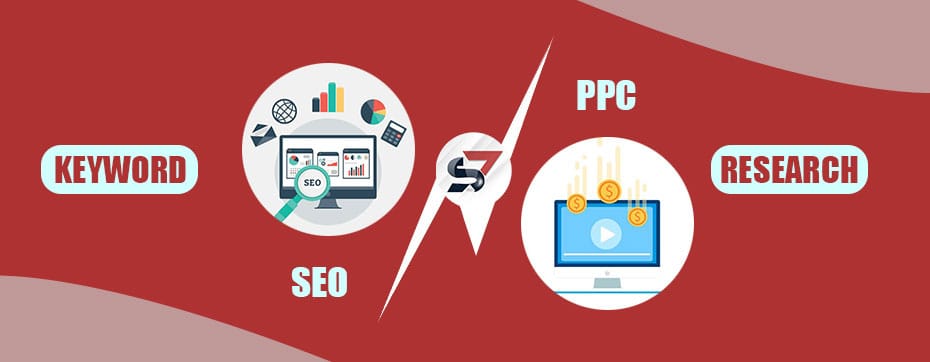
SEO vs. PPC has a totally different method of searching keywords.
SEO keyword research
For instance, you run a shoe business, so you need to choose the best keyword that will help you to rank your shoe website on the search engine. You can also analyze your competitor, who is already ranking in the top position for selling the shoes, and use similar keywords or ideas to move ahead of your competitor.
Users usually use niche keywords to search for any result, so it is better to use niche keywords for your product. To get the right keyword for your goods and services, you can use various keyword research tools such as Google keyword planner, Ahrefs, SEMRush, Ubersuggest, etc. These keyword research tools can help you get the most searched keywords with their exact search volume and location.
Other tips for SEO ranking:
- Write the most interactive content for your users.
- Prepare the most appropriate meta description for your content.
- Optimize your content and site.
- Check the keyword density.
PPC keyword research.
Using the same high-ranking keyword of your website can be used for your PPC ad. Along with using the right keyword, it is essential to look into other factors as well:
- Targeting the audience through the right keywords.
- Use different keyword match ideas such as broad, phrase, and extract.
SEO vs. PPC Pros and Cons
Some of the SEO vs PPC pros and cons are as follows:
Pros of SEO vs. PPC
Pros of SEO
- SEO is an all-rounder factor for the ranking of any website and content.
- SEO works 24*7 for promoting your business.
- The best SEO strategies can help you in increasing your brand awareness.
- It can help you with a high and long-term rate of return.
Pros of PPC
- PPC strategies give you immediate results.
- Result in sales of a company’s products and services.
- PPC ads look more like a pitch for the users to buy goods and services.
- PPC is based on audience targeting.
Cons OF SEO vs. PPC
Cons of SEO
- SEO is a time-consuming process
- Changing Google’s algorithm is a threat to SEO.
Cons of PPC
- It requires high investment.
- Not following the right strategies can be a threat.
- Advertisers need to use the right keywords, content, and images to attract consumers.
Conclusion
I hope this article has solved most of your queries and has given you complete information about SEO vs PPC strategies and campaigns. So don’t limit your opportunities or your career growth by delving into this debate and opposing one another.
On the contrary, accept the flow of paid and organic search channels. Grow by using the integration of both and improve your prospects and outcomes.

